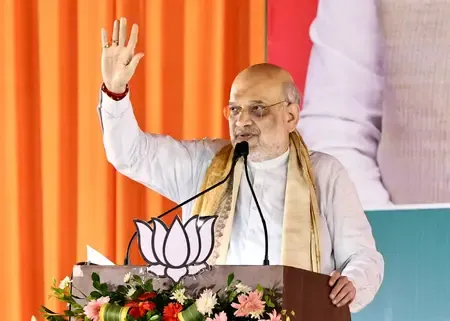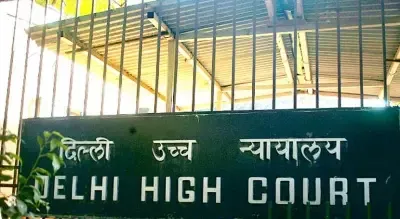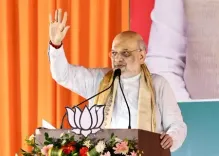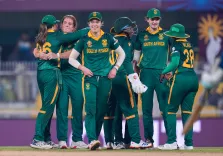INDIA Bloc Denounces JPC Waqf Report as Unfair and Partial
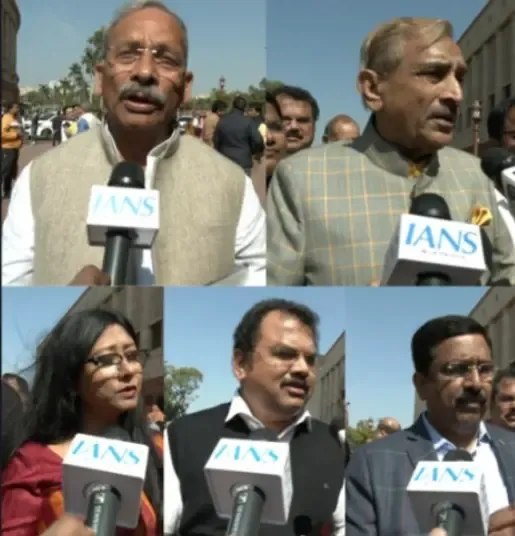
Synopsis
Key Takeaways
- INDIA Bloc opposes the Waqf Bill.
- JPC report deemed one-sided by opposition leaders.
- Concerns over government control of religious properties.
- Accusations of procedural lapses in the JPC's work.
- Calls for inclusive discussions and stakeholder participation.
New Delhi, Feb 13 (NationPress) The INDIA Bloc vehemently condemned the Waqf Bill and the Joint Parliamentary Committee (JPC) report introduced in Parliament on Thursday, describing it as 'biased' and 'one-sided.' The opposition raised issues regarding the bill's motives and its neglect of their contributions, while some leaders expressed concern over the government's growing dominance over religious assets.
In a conversation with IANS, Congress MP Syed Naseer Hussain asserted: "An attempt was made to present the report in the Rajya Sabha, where the chairman attempted to table it. The Opposition parties unanimously opposed it. It’s clear this bill is not balanced; it is entirely skewed in favour of the government. The JPC did not follow proper procedures—stakeholders were excluded, and crucial discussions on conflicts over state law versus higher court rulings were overlooked. Many key witnesses, including former minor chairmen, were not called to testify, and dissenting opinions were barely considered. What we have here is a report that only reflects the ruling party's views, and the process was fundamentally flawed."
The opposition also highlighted procedural irregularities, with Congress leader Pramod Tiwari charging the JPC with becoming merely a tool for the government.
"The ruling party’s suggestions were fully incorporated, while not a single opposition suggestion was taken into account. This report is incomplete and reflects nothing but the government’s agenda," Tiwari stated.
DMK MP M M Mohamed Abdullah joined the criticism, denouncing the expedited process and the rejection of opposition amendments.
"The entire process has been rushed through with no regard for regulations. Not one of our amendments was adopted, and even parts of our dissent notes were removed. This sets a dangerous precedent, and soon, they will target religious properties like those of the Gurudwara."
JMM leader Mahua Maji voiced apprehensions about the bill's broader implications, warning that it could facilitate further government interference in religious properties.
"The way the government is targeting Waqf land today, we fear the same could happen to other religious properties tomorrow. The Christian community and their charitable institutions are also at risk. With the increasing privatisation of public assets, we’re seeing a disturbing trend where the rich get richer, and the poor are left behind. We are strongly opposed to this bill," she remarked.
Conversely, Rashtriya Lok Dal (RLD) leader Rajkumar Sangwan defended the JPC’s actions, contending that it included a diverse array of opinions from various political factions and organizations. He maintained that the bill aims to tackle the "illegal occupation" of Waqf properties by "criminal" elements, which the opposition allegedly supports.
"The report reflects the inclusion of all views. The opposition is resisting because they are aligned with mafias who illegally control the land. The bill seeks to ensure these properties are no longer occupied by illegal entities, and the opposition’s resistance to this is baffling," he declared.
Sangwan further accused the Opposition of attempting to obstruct Parliament’s functioning, stating, "The Opposition is trying to create a disruption so that the work of the House is delayed. They don’t want issues of national and public interest to be discussed, as they prefer to align with those benefiting from illegal control over properties."
Both houses of Parliament experienced a significant clash between the NDA and opposition MPs, leading to adjournment of proceedings after the report of the joint committee on the Waqf (Amendment) Bill, 2024, was presented on Thursday.
The report on the Bill, which "aims" to streamline the registration of Waqf properties, was tabled in both Rajya Sabha and Lok Sabha.

